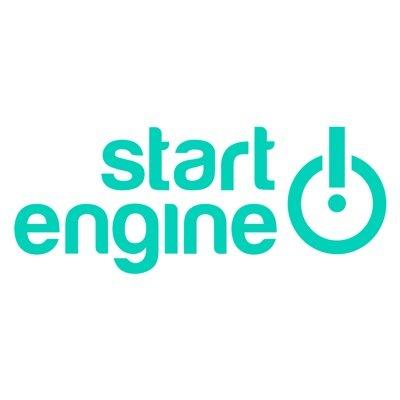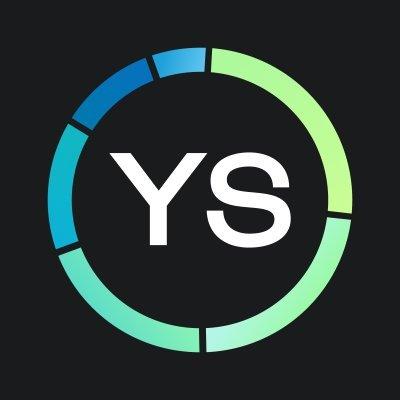Invest in startups in exchange for equity or debt
Invest in private market alternatives
Investments
$250
The minimum investment on StartEngine typically starts from $250, with the average being around $500.
High Risk
4/5
Investing on StartEngine carries risks including market volatility, liquidity challenges, regulatory changes, the high likelihood of company failure, dilution of shares, limited company information, and the absence of guaranteed returns.
Moderate Risk
3/5
Yieldstreet investments, focused on high-yield, specialty lending, carry inherent risks higher than traditional investments, primarily due to the potential for borrower default.
Minimum Liquidity
1/5
Liquidity on StartEngine Secondary varies due to its nature as a peer-to-peer trading platform with specific eligibility criteria and trading hours. Initially limited to companies that have raised on StartEngine, the platform's liquidity is influenced by the availability of securities and the matching of buy and sell orders within designated market hours.
Minimum Liquidity
1/5
Yieldstreet's investments are generally less liquid, meaning they cannot be quickly sold for cash. These private market alternatives often require longer holding periods.
Receive new reviews from Fintorial
Not Predictable Return
N/P
Potential returns on investments are uncertain and vary. StartEngine's role ends after a company's capital raising concludes, leaving it without control or insight into post-offering investment activities.
Moderate Return
9.6 %
The expected net annualized return (IRR) for investors on Yieldstreet is 9.6%.
Long-term Investment
5+ years
Investments through StartEngine typically have a long-term horizon, often requiring several years to potentially yield returns due to the early-stage nature of the companies.
Short-term Investment
6+ months
Yieldstreet's investments span time horizons from as brief as 6 months to as long as 5 years.
Who can invest
International
StartEngine allows anyone over 18 to invest. However, due to regulatory concerns, StartEngine does not currently accept investments from residents of the UK or Canada.
Who can invest
United States
Yieldstreet is open to U.S. persons with a valid TIN, U.S. bank account, and U.S. mailing address. Non-accredited investors can access the Alternative Income Fund, while single asset investments require accredited investor status verification.
Moderate Volatility
3/5
Assets on StartEngine, mainly shares in startups and early-stage companies, exhibit high volatility due to uncertain revenues, evolving business models, and market sensitivity.
Moderate Volatility
3/5
Assets on Yieldstreet, being alternative investments, often show different volatility compared to traditional markets, potentially offering less correlation with broad market swings.
Regulation and audits
SEC Regulated
StartEngine operates under strict regulatory oversight by the SEC and FINRA, ensuring adherence to investor protection and market integrity rules.
Regulation and audits
SEC Regulated
Yieldstreet is regulated and undergoes regular audits for compliance. Its partnership with Synapse Brokerage LLC, an SEC-registered broker-dealer and FINRA and SIPC member, ensures adherence to strict financial regulations.
Insurance
Yes
StartEngine's memberships with FINRA and SIPC signify its commitment to investor protection, with SIPC offering insurance against the loss of cash and securities if a broker-dealer goes bankrupt. However, it doesn't cover market loss.
Insurance
Yes
Funds in the Yieldstreet Wallet are insured up to $250,000 by the FDIC, with deposits between $250,001 and $1 million spread across multiple FDIC-insured banks for extended coverage.
Payouts
No Recurring Payouts
Dividends on StartEngine depend on the individual company's policy and investment terms, with startups often reinvesting profits to fuel growth rather than distributing dividends.
Payouts
Dividends
Yieldstreet offers varied dividend or interest payment structures: fixed income investments provide monthly payments at a target yield, diversified portfolios offer quarterly target yields, and art investments yield returns upon sale, all subject to specific terms and potential annualized net returns.
Withdrawals
Investors can withdraw available funds from their StartEngine Investment Account after a 10-day waiting period from the initial transfer, subject to providing additional information for security if needed.
Withdrawals
Investors on Yieldstreet receive distributions directly into their Yieldstreet Wallet and can withdraw these funds to their bank account as desired.
Extra Fees
Yes
Investors may encounter a 3.5% processing fee on investments, depending on the company's choice. Wire transfers could have additional bank fees, while ACH and credit card investments don't have extra fees beyond the 3.5% if applicable. Trading on StartEngine Secondary is free for buying, but selling shares includes a 5% transaction fee.
Extra Fees
Yes
Yieldstreet's fees include a range from 0% to 2.5% annual management fees, structured notes incur a 1.25% annual management fee plus a $150 annual fund expense, the Yieldstreet Alternative Income Fund charges a 1.0% annual management fee and up to a 0.5% annual administrative expense.
Taxes
Annual Statement
Investors must procure the necessary tax documents directly from the entities in which they have invested, since StartEngine does not distribute tax forms.
Taxes
Tax Form
Yieldstreet issues either a K-1 or 1099 form for tax purposes, based on the legal structure of the investment, with details provided on the offering page and in downloadable documents when new offerings are launched.

